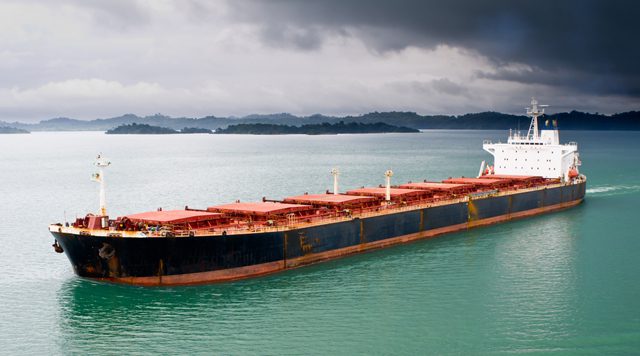Iranian Ship Linked to Houthi Attacks Heads Home Amid Tensions
(Bloomberg) — An Iranian ship that’s been linked to Houthi attacks in the Red Sea is returning home, removing a prominent asset in the area as the Islamic Republic braces...


Shipowners were lucky this year as newly proposed accounting standards have been delayed until at least 2015. The new rules would bring certain charters onto shipping companies’ balance sheets. Any shipping company that has a bareboat charter or time charter, chartered in, for in excess of one year, or a one year time charter with options, will have to alter its corporate liabilities, impacting its debt leverage ratios and potentially causing breaches of loan covenants. The proposed new accounting standards for shipping will have significant consequences impacting corporate liabilities, loan covenants and whether shipping companies with such charters maybe in technical default on their outstanding debt.
The change in accounting standards for shipping is the result of a coordinated effort by the International Accounting Standards Board (“IASB”) and the Financial Accounting Standards Board (“FASB”) in the U.S. This type of accounting is consistent with the methodology the rating agencies employ when evaluating companies, including long-term leases into the balance sheet of companies.
If the newly proposed accounting standards were to be applied in 2013 to shipping companies, banks and shipping companies would be in a substantially worse financial condition than they are reporting today.
Numerous shipping companies would be in breach of loan covenants and financial institutions would need to increase loan loss provisions. How many shipping companies would be in technical default and what would be the size of the increase in loan loss provisions, we can only speculate? And while the problem has a significantly less impact on dry bulk companies than it does for container (liner) companies, we are sure that financial institutions would experience a material increase in loan losses.
And if a firm such as Navios Maritime, which has a number of bareboat/long-dated time charters chartered-in, were to have had to restate financial statements for these accounting changes in 2013, we suspect it would impact their balance sheets. I am not sure if analysts, such as Omar Nokta of Global Hunter Securities might rate the Company the same way if these accounting standards were applied retroactively.
Let’s ignore a change in accounting standards in our evaluation of the dry bulk industry and “kick the can down the road.”
If the financial institutions really wish to ‘kick the can down the road,” the institutions that finance shipping companies will end up giving waivers in exchange for fees. However, don’t worry, a day of reckoning will come to pass. These accounting standards will at some point impact shipping markets, including the dry bulk market, as well as the financial institutions which are financing these companies. Regulators and investors are getting wise to companies and financial institutions manipulating the financial system and putting the default risk on governments, central banks and taxpayers and the financial institutions they in effect support.
Jay Goodgal can be reached via email at [email protected]
Join the gCaptain Club for curated content, insider opinions, and vibrant community discussions.


Join the 105,968 members that receive our newsletter.
Have a news tip? Let us know.
Access exclusive insights, engage in vibrant discussions, and gain perspectives from our CEO.
Sign Up




Maritime and offshore news trusted by our 105,968 members delivered daily straight to your inbox.



Essential news coupled with the finest maritime content sourced from across the globe.
Sign Up